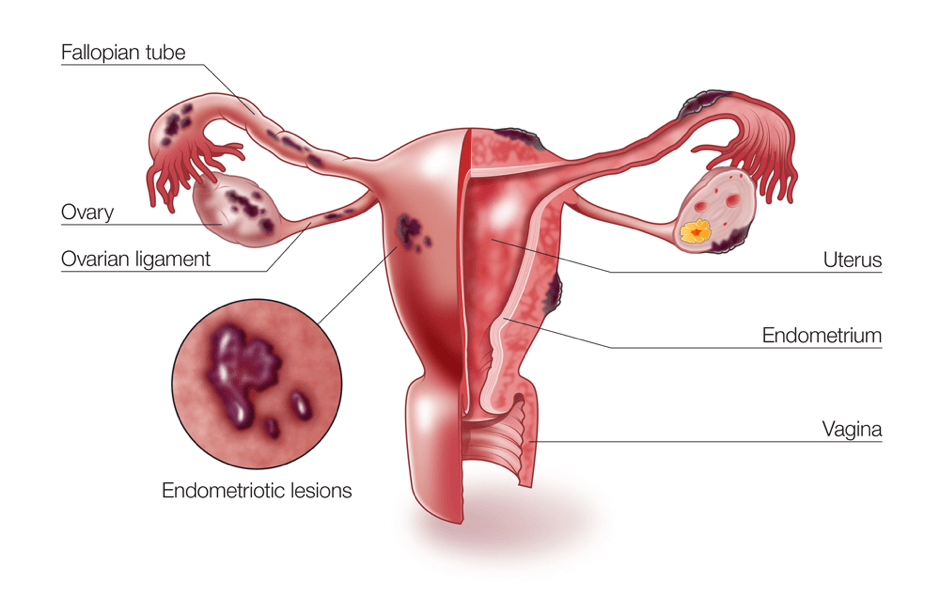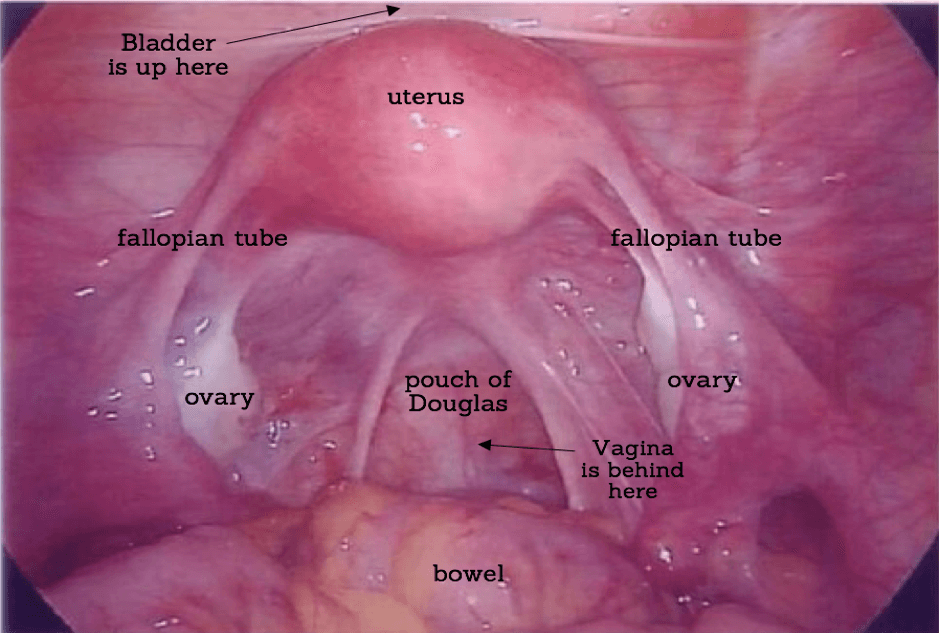Endometriosis is a debilitating gynaecologic disease characterised by the implantation of endometrial tissue in areas outside the uterus, including the pelvic peritoneum, ovaries, and bowel. It can even be found in lungs, bladder and brain.
What does this mean?
Basically cells that are similar to the ones that line your uterus are found in other parts of the body.
So why is this a problem?
Unfortunately these cells form tissue which reacts to hormones, the same way the tissue inside your uterus does. So they thicken and then shed each month, like when you have a period, however the blood does not pass out of the vagina, instead it causes inflammation, adhesions, pain and scarring.
Studies suggest that endometriosis affects 1 in 10 women of reproductive age, with an estimated 176 million women worldwide having the condition.


What causes endometriosis?
We don’t really know what causes endometriosis, and possible causes can differ from person to person. There are a number of theories, and it’s thought that the cause is likely a combination of the following;
- Family history: Women who have a close relative with the condition are up to 7-10 times more likely to get endometriosis.
- Retrograde menstruation: When a woman has a period, the blood flows out of the vagina, but also backwards along the fallopian tubes into the pelvis. In 90% of women, the blood, which will contain endometrial cells is absorbed or broken down and causes no symptoms; however, in women with endometriosis this endometrial tissue starts to grow.
- Cell transformation: When cells from normal pelvic tissue transform into endometrial tissue.
- Cell transportation: Cells are transported from the endometrium to other areas of the body through the blood and lymphatic system. Then they can stick anywhere and begin to grow.
How do you know if you have endometriosis?
The symptoms can vary from woman to woman, some women have many symptoms and severe pain and others have none. Often endometriosis is discovered after experiencing fertility issues or during another operation.
Symptoms and severity are often related to the location of the endometriosis rather than the amount. In some cases, scarring caused by the endometrial cells can result in blockages in the fallopian tube causing fertility issues. It can also cause adhesions e.g. fallopian tubes sticking to bowel; ovaries sticking to the uterus etc.
Symptoms
- Pain – before and during a period, during ovulation and going to the
toilet
- Bleeding – irregular, with or without a cycle
- Bowel/bladder issues – bleeding, constipation, diarrhoea, urgency
- Fatigue – especially around the time of a period
- Mood changes – likely due to ongoing pain
When to get help
If pain and bleeding is affecting your quality of life, and your ability to function day to day, you really need to see your GP and ask for a referral to a gynaecologist. If any of the following apply to you, we recommend seeking help;
- missing work, school or social activities
- when medicines used for period pain don’t help
- when you need to stay in bed due to pain
- when symptoms are getting worse
- when you feel upset by your symptoms
- when your ability to cope mentally decreases
How can we help?
Dr Matthew Stinson holds a special interest in Endometriosis, and will work with you to find the answers you’re seeking. If you suffer from Endometriosis there are a number of treatment options available including hormonal, medical and surgical. Dr Stinson will work with a team of specialists including Pelvic Health physiotherapist, Psychologist and Dietician to tailor a treatment solution to your specific needs.
More Information
If you’d like further information Jean Hailes have an excellent page on Endometriosis.